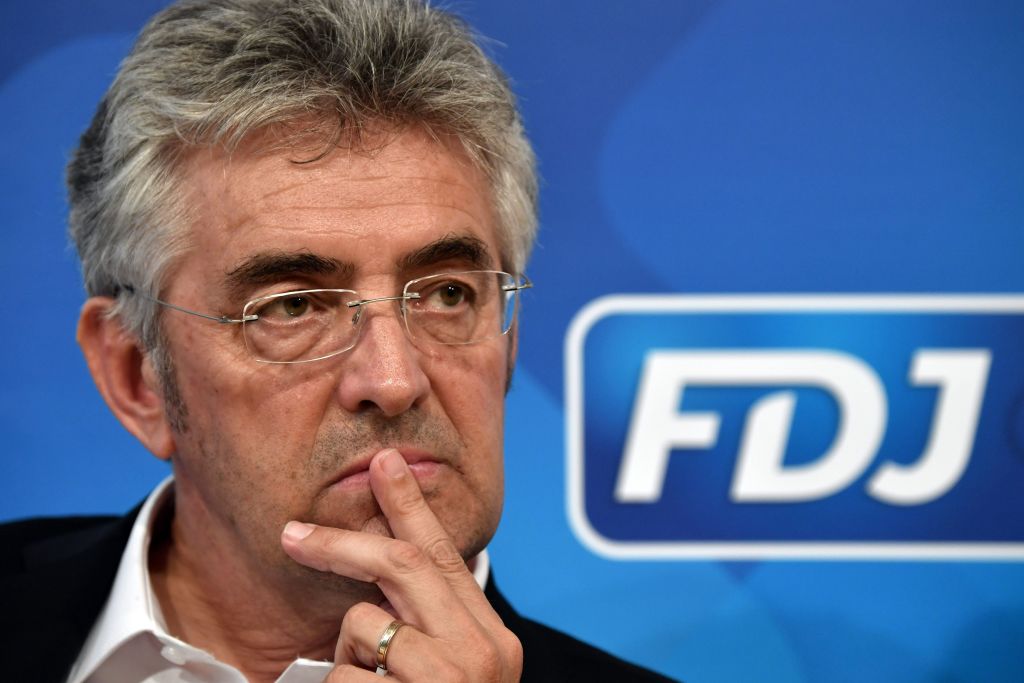Marc Madiot suggests riders should go on strike to force major changes in pro cycling
Groupama-FDJ manager on why the sport will survive COVID-19 pandemic

Groupama-FDJ manager Marc Madiot has suggested professional cycling will survive the severe economic impact of the COVID-19 pandemic, suggesting only a revolution by the riders can force a change to the sport's weak business model and disrupt the private ownership and control of major races like the Tour de France.
The often outspoken Frenchman has almost always sided with Tour de France organiser ASO, recognising their skills at making the Grand Boucle a global event. However, as several major teams cut or defer salaries and may not survive, he seems to admit professional could have followed a very different path if the sport was not dominated by privately owned companies. It appears to be a call for change and a call to arms for the riders.
"Things would have been very different if the Tour hadn't been created 100 years ago by a newspaper but by a Federation," Madiot told French newspaper L'Equipe, speaking philosophically as the President of the Ligue Nationale de Cyclisme (LNC) that governs professional cycling in France.
"If the big races were not privately owned, if we owned these events, then we could regulate them and that would be a big game-changer. The Federation would not be struggling, and the Ligue would not be just surviving. But to get there, to change things, it'd need a revolution.
"The riders would have to protest. At the start of the Tour, the riders would have to say: we're not starting. I did it once, for a small problem and it worked. For example in 1991, regarding helmets. We went on strike, we took off our helmets. I'm not saying it was the best decision but we won, and the riders could still win today. If the riders stop, there isn't a race."
Despite a call to arms, Madiot admits major changes in the sport probably won't happen. He knows that ASO has huge influence over the governance of professional cycling due to its power and influence, and its sway of the AIOCC race organisers' association and the key committees at the UCI.
"No, because it's human nature to quietly return to what we know, to what we know what to do," he says when asked if it will happen.
Get The Leadout Newsletter
The latest race content, interviews, features, reviews and expert buying guides, direct to your inbox!
"For all the big talk, the new world, the big moves, we'll have to wait a year or two. Maybe things will change around the edges but that's all."
Fortunate to be French

Madiot admitted he feels fortunate to have the support of title sponsors Groupama and FDJ. In recent weeks he has personally tried to promote all his different sponsors via social media, while the team has secured some state benefits to cover costs due to all riders and staff being employees of the team rather than self-employed contractors as in many other teams.
"When I see the CCC Team situation, I realise we're lucky in France," Madiot said.
"I'm lucky with Groupama and FDJ, and I think Cofidis, who is also the owner of their team, have the same sensitivity. It's more than just business. That's what I tell my guys: Groupama and FDJ support us, we are on the same team. It's not just two logos on a jersey. Obviously financial difficulties could have arisen but we have managed to put ourselves in a situation where we will be able to overcome them."
The former two-time Paris-Roubaix winner was pleased to see a new race calendar even if three Grand Tours, all the major classics and minor races will be packed in just four months between July and early November. He understands the importance of offering hope.
"I'm not surprised that we succeeded (in creating a new calendar). In 1998 for other reasons (the Festina doping affair), cycling knew how to change after defeat. We weren't far from the precipice but we managed to start again. That's why I dare to hope that it will be the same this time."
Madiot finds hope in the gradual end of the COVID-19 lockdown. If many aspects of normal life can resume, the perhaps so can professional racing.
"If the sanitary conditions needed for racing are possible, we should be okay," he said.
"If there's one thing that this crisis has revealed, it's that in cycling we're viscerally attached to our sport. If you've ever worn a race number, you're used to fighting. I feel that and I watch my back. There's an instinctive sense of survival in cycling. The fact that we were able to design a new race calendar underlines this spirit, which is specific to cycling: If you fall, you get up, and you quickly get back into the peloton, otherwise you're on your way home.
"The most interesting aspect of the future, is how professional cycling will return in 2021. We can’t ease up. And professional cycling will have a decisive role for amateur cycling: if we can't restart the machine and move forward, amateur cycling will sink. For once, it's the pros who will lead the amateurs, whereas in normal times, it's the base which supports the pyramid."

Stephen is one of the most experienced member of the Cyclingnews team, having reported on professional cycling since 1994. He has been Head of News at Cyclingnews since 2022, before which he held the position of European editor since 2012 and previously worked for Reuters, Shift Active Media, and CyclingWeekly, among other publications.